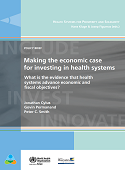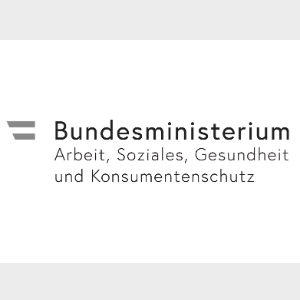Making the economic case for investing in health systems. What is the evidence that health systems advance economic and fiscal objectives?

Download
This policy brief is one of a new series to meet the needs of policy-makers and health system managers. The aim is to develop key messages to support evidence-informed policy-making.
Good health is a fundamental goal of all societies. Although health is determined by a large number of factors throughout the life course, the health system is one of the most important contributors to population health that lies within the direct control of policy-makers. Yet, health-policy-makers who seek to make the case for increased financing for their health systems are often met with scepticism within governments. This scepticism may be explained in part by a belief among some finance-policymakers that health systems may not support (or may even undermine) key economic and fiscal objectives.
This policy brief contends that, despite these common concerns, strong arguments can be made that health systems can play an important and largely favourable role in the economy. In fact, it finds evidence that the economic and fiscal objectives of finance-policy-makers are in many respects actively promoted by health systems or that this could be achieved if adequate, stable resources were made available.
This brief seeks to support health-policy-makers by framing available evidence and structuring arguments in a way that is likely to resonate with finance-policy-makers to help health-policy-makers secure a ‘fair hearing’ in governmental debates about public spending. To that end, the evidence and arguments presented in this brief are centred around the key objectives of the finance ministries in the WHO European Region as found in their mission statements and reflected in their policies: (1) stewardship of government funds; (2) macroeconomic growth; (3) societal well-being; and (3) fiscal sustainability.





















